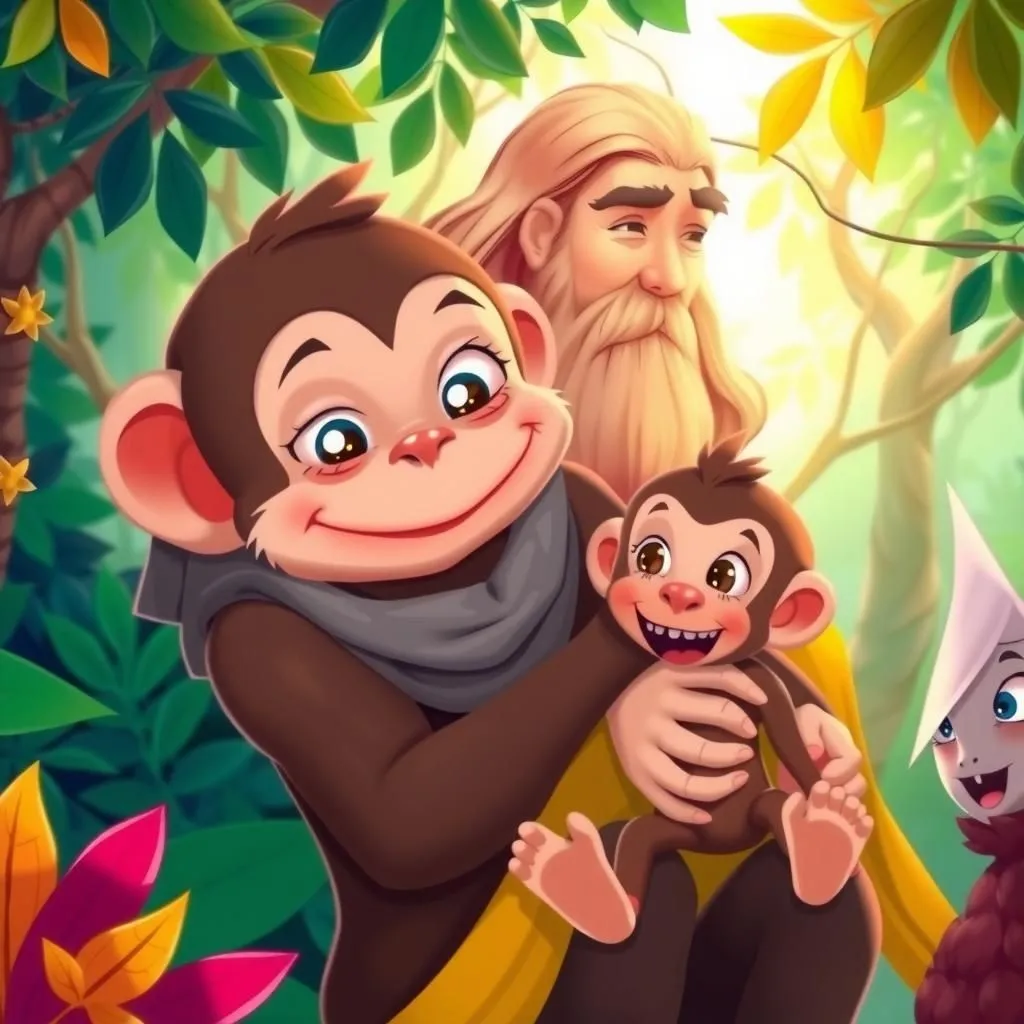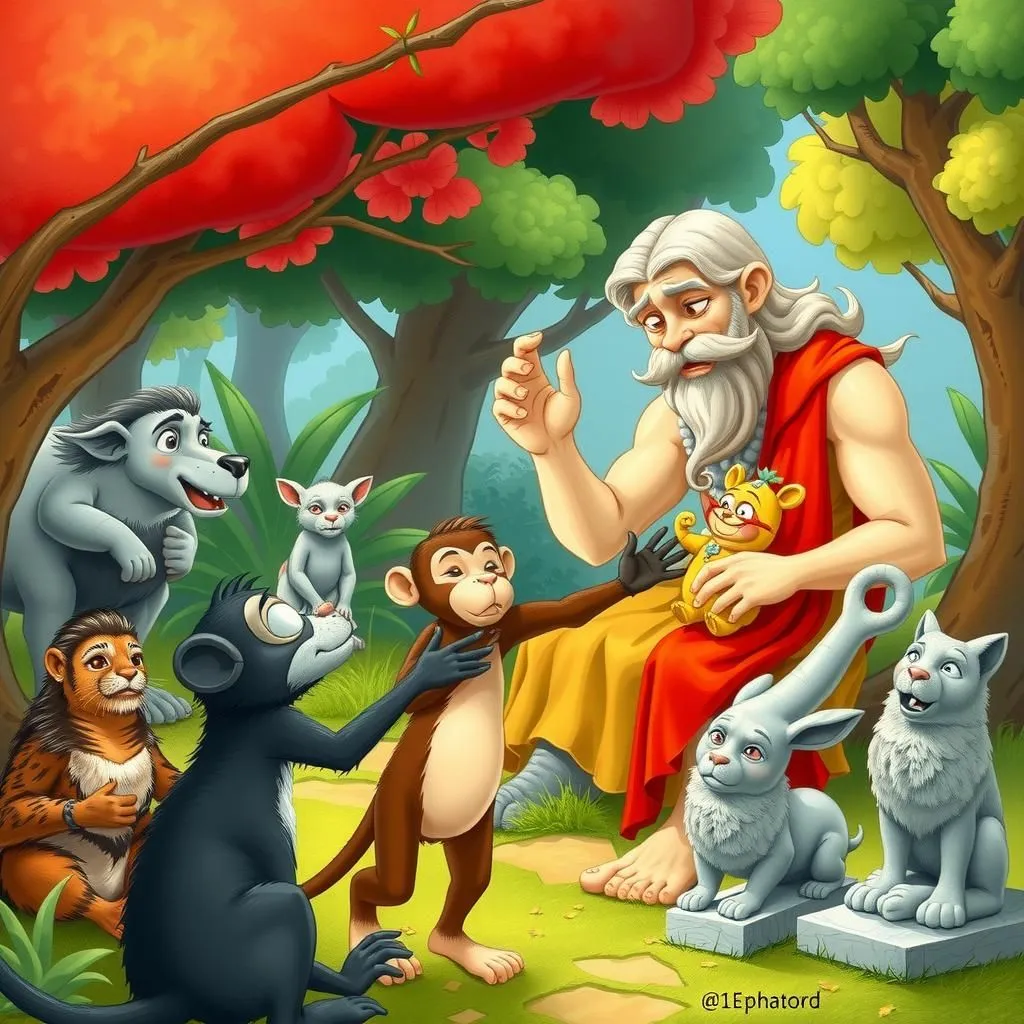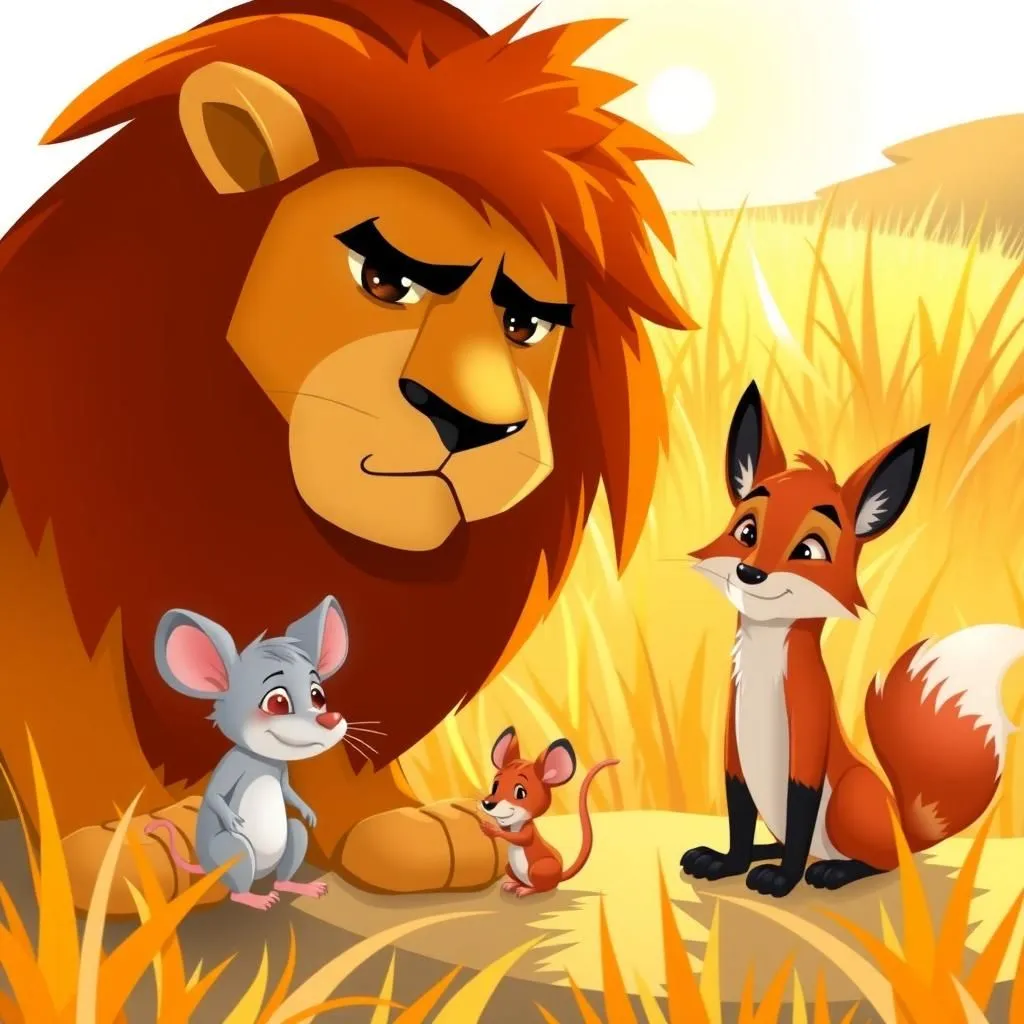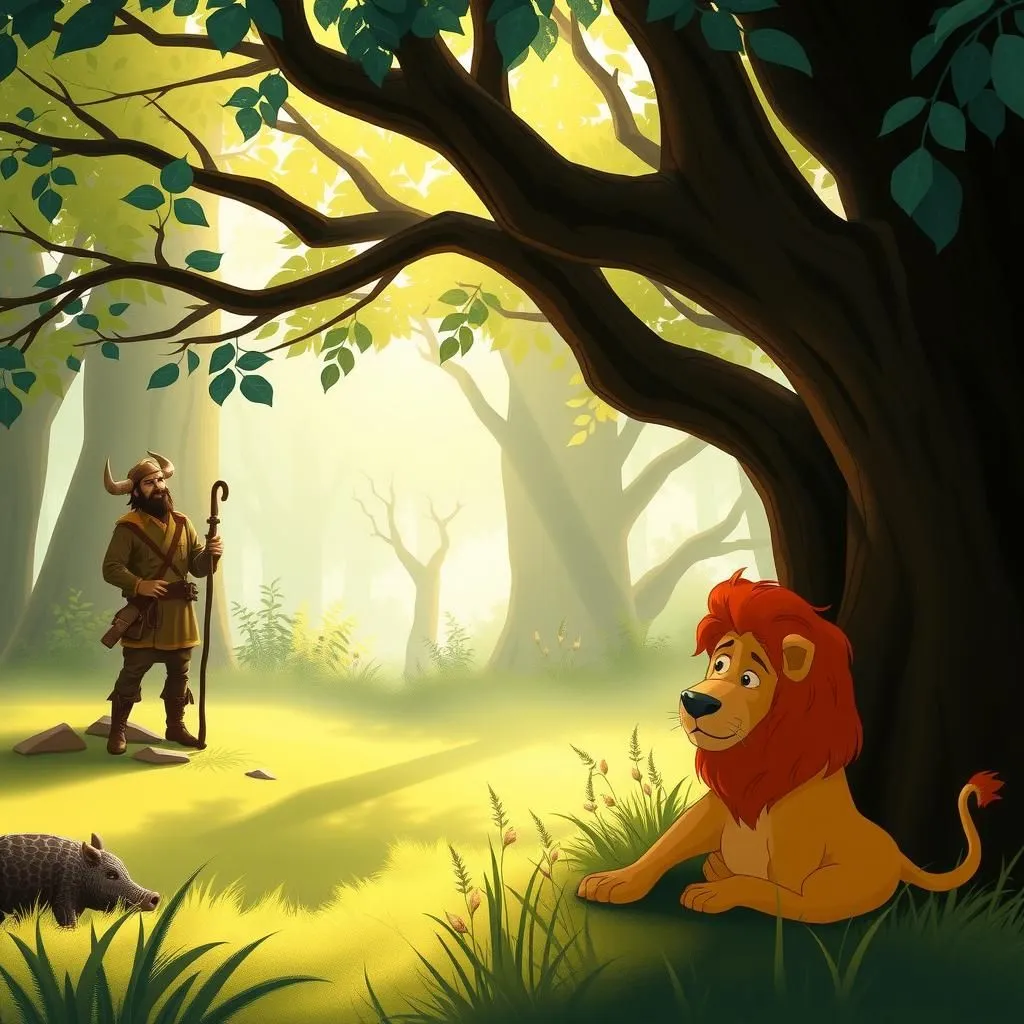
Jupiter and the Monkey
In "Jupiter and the Monkey," a culturally significant moral story, Jupiter promises a reward for the handsomest offspring in the forest. The Monkey proudly presents her ill-featured son, asserting that he is the most beautiful in her eyes, despite the laughter of others. This short and sweet moral story teaches kids that a mother's love transcends appearances, highlighting simple lessons from stories about self-acceptance and inner beauty.


